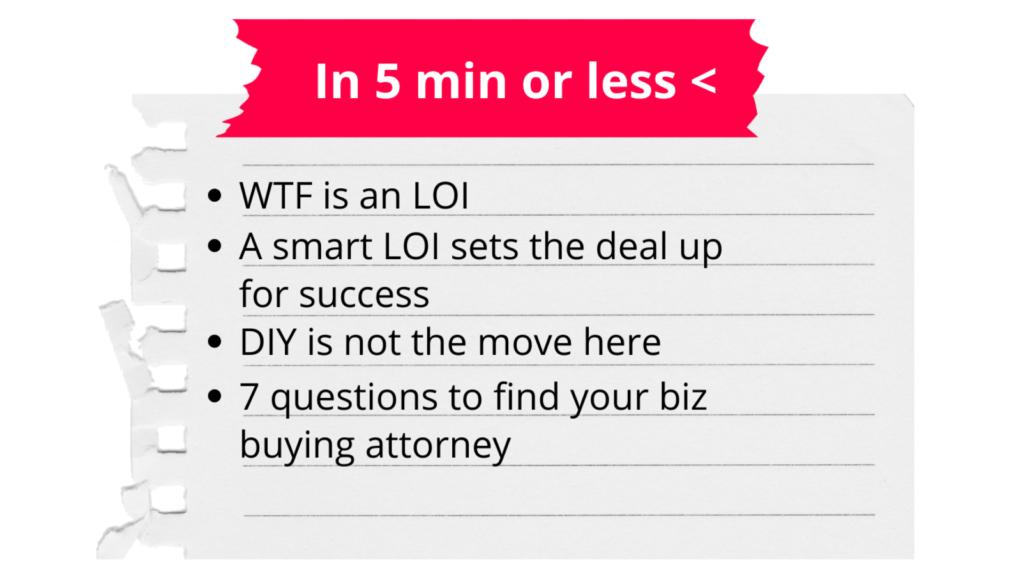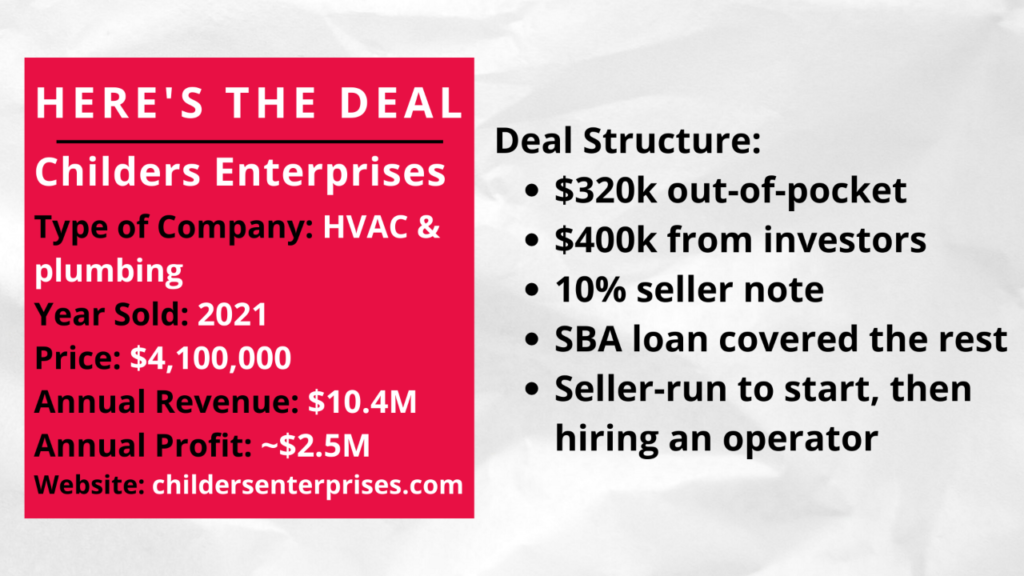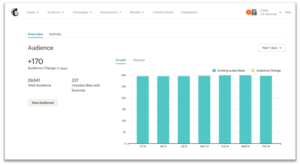

Gird your LOIs
You’ve got a few bookmarks on businesses you’ve been interested in buying, and now you’re ready to approach the owner.
Not so fast.
Before you can get the full financial picture of a business you want to buy, you’ve got to get your hands on the goods—the financials and the records.
But the seller isn’t going to just let you walk through the door with them. You have to ask for permission via an attorney with a letter of intent (LOI for short). And maybe an NDA.
We have a system in place for when we’re making moves on a business. After doing millions of dollars in deals, these aren’t that complicated.
But before we go on, it has to be said…we’re not attorneys, and we’re not giving legal advice here.
We are simply sharing what works for us.

WTF is an LOI?
A letter of intent, or LOI, is the first documented touchpoint and non-binding agreement between all parties that will be involved in a business deal.
When buying a small business, the LOI is how we get the information we need to make an informed decision and complete our due diligence.
Once this paperwork is approved by the current owner, we get access to non-public information like the seller’s financials, company records, and customer information. Then we can verify accuracy and make sure this is a good deal to pursue.
Submitting an LOI is one of the first major steps on the path to acquiring a small business. And it’s a critical one, but so is every other piece of the puzzle.

A smart LOI sets the deal up for success
We’ve done a whole lot of these…and yes, made our fair share of fumbles. Here’s what we find works best.
Know our ideal payment terms
Figuring out the financing before sending the LOI makes the initial search process much smoother—especially if we’re working with a broker.
It helps to go in knowing what elements of our deal are non-negotiable and where we’ve got wiggle room.
Our fave way to fund a deal is through seller financing, but we’ve also got the option to apply for a bank loan or an SBA loan.
Avoid TMI
The point of an LOI is to get the basic information we’ll need to make an informed decision during our due diligence process.
But we also leave room to get curious during our conversation with the seller. We typically ask upfront for:
- A list of what is up for grabs in the sale (i.e. assets, equipment)
- Clarification on the deal timeline (especially around key dates)
- Payment terms (i.e. cash, assets, equity)
- Written consent of confidentiality for both parties until the deal is completed
Seek exclusivity
What we don’t want is for our seller to have the option to approach or negotiate with multiple buyers at once, so they can pull together their best offer. Letting the seller shop our deal with other parties will cost us money.
So, we include verbiage in our LOI that protects our negotiation period for a set amount of time. That gives us time to take the next step and get under the hood of the business we’re interested in buying.
This is typically not possible during the NDA stage, and it may cost some money to lock it down for this period. So the devil is in the details on how long of an exclusivity period we get.
We often ask for 30 days.
Communicate through a single point of contact
We also avoid using casual communication channels (like text messages) when discussing the deal with our seller or with our dealmaking team.
If we have a conversation in-person or on the phone, we also make sure to take notes and promptly send a follow-up email that documents what was shared and discussed by both parties.
F Yes or F No
Strong communication is the #1 indicator to the seller that we know our sh*t , so this one carries some weight.
If we come across as half-in half-out, wishy-washy, or otherwise semi-uninterested in the deal, we’re likely going to annoy the seller.
We respond promptly with email replies, follow up in a timely manner, and always communicate important status updates with the seller.

DIY is not the move here
Let me tell you about my friend Ken. He thought that he could save a few bucks, download the first LOI template that he found on Google, and send it over to his seller as a placeholder until he had a little more time to pull together the real deal.
The only problem was that, without knowing it, Ken committed to his deal without doing his due diligence…all because one teeny tiny microscopic clause wasn’t tweaked, which turned the LOI into a legally binding document.
Say it with me…
Ouch.
Since Ken thought that it would be “smarter” and “less expensive” to hold off on hiring an attorney, he didn’t have someone who went to law school look over his LOI before he pressed send.
Please, I’m begging you. Do not do this.
Templates are (sometimes) great, but one of the most invaluable assets you’ll have in your biz buying journey is an attorney.
Preferably one who:
- Is well versed in small biz M&A
- Has experience with the size of your deal and industry
- Can scrub your LOI for any legal jargon that actually equals a legally binding document (amongst other important things)
- Can give you actual legal advice (since, again, we can’t)

7 questions to find your biz buying attorney
When you’re on the hunt for an attorney to draft an LOI for buying a small and profitable business, it’s like finding Waldo in a sea of striped shirts.
So, let’s spice things up with seven sizzling questions you can ask to find your legal superhero.
- Have you ever dipped your toes in the LOI pool for small businesses, or are you still testing the waters? Experience is the name of the game, and you’ll want an attorney who knows how to swim with the sharks.
- Got any adoring fans who will sing your praises? A good attorney will have a fan club of satisfied clients who can vouch for their ability to work their legal magic on deals like yours.
- You wouldn’t happen to be an encyclopedia of knowledge about the industry I’m diving into, would you? It’s a big plus if your attorney knows the ins and outs of the industry you’re entering, because they can help you navigate the minefield of regulations like a pro.
- What’s your secret recipe for an LOI that has my back? A skilled attorney can cook up an LOI with all the right ingredients to keep your interests safe and sound, without giving away the secret sauce.
- How do you win friends and influence sellers (and their attorneys)? Your attorney should be a smooth operator when it comes to negotiations, making sure you come out on top without ruffling too many feathers.
- Speaking of cash money, how do you like to be compensated for your legal wizardry? Is it a flat fee, an hourly rate, or some other mystical concoction? No one likes surprises when it comes to the bill, so better to get the money talk out of the way early.
- And lastly, how’s your texting game? Good communication is essential, so make sure your attorney won’t ghost you and will keep you in the loop as the deal unfolds.
If you can’t afford an attorney, it’s worth holding off on buying this (or any) biz until you can. Or wrap some of that cash into the expected sale cost. The investment is worth it.
It’s also a good idea to network with other small business buyers and service providers (like accountants, attorneys, and brokers) who can help you during the process.
There are many local small business bureaus, Facebook groups, and networking websites specifically for small business buyers and investors.



This Week in Biz Buying:
How owner mindset made this door business go from good to great
Revlon gets a makeover, restructuring to wipe clean $2.7 Billion in debt
KPI lesson from Twitter: never overlook revenue per employee
⛽Shell’s strategic expansion for a future where gas stations are obsolete
Yak attack: how NOT to transition ownership on a new acquisition




